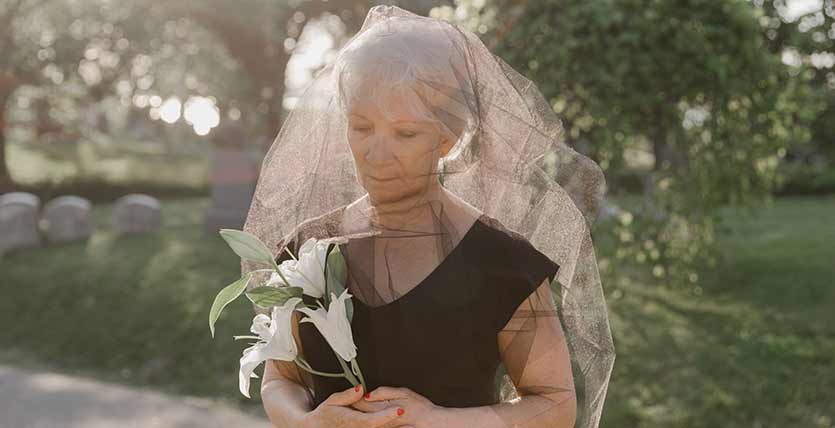The pain we feel when a loved one dies is a very natural emotion. It elicits a wide range of feelings, many of which contradict one another. As a result, after the death of a loved one, we may experience wrath, aggravation, regret, disappointment, disappointment, disbelief, relief, and even pleasure. Our emotions can shift from day to day, hour to hour, and even minute to minute. How can we experience grief and control our emotions in mourning?
What Is Grief?
When a loved one dies, a chapter is closed; there is no chance of reconciliation, restoring friendship, or clarifying doubts. We will not ask questions that we would not have dared to ask previously. We will not make amends for previous wrongs, nor will we be compensated if we have been harmed.
Death is one of the few unavoidable events in life. The only thing left for us is to close things via symbolic acts, answer questions based on assumptions and fantasies, and work on what is inside us without the chance of addressing a real person.
That is exactly when we start to experience grief during the time we mourn our loved ones. It is a complex set of emotions ranging from sadness to frustration. Such occurrences provoke introspection, which frequently transforms our behavior. It slows down the pace of life and reflects on the values we hold dear. Often, grief forces us to make decisions we have put off for years.
It may interest you: Loved One’s Suicide – How to Live Life After Such Tragic Events
Facing a Sudden Death of a Loved One
When someone dies unexpectedly – as a consequence of an accident, disaster, or crime – our feelings might be exceptionally intense. The grief process may then become more intense. Shock reactions such as confusion, loss, denial, and disbelief are commonly experienced.
Furthermore, we frequently face a slew of practical issues for which we were unprepared. When someone dies suddenly, in good health, there are generally no “contingency plans” in the event of their death. Hence, a family may lose the main breadwinner, children – the primary caregiver, parents – lose their future dreams.
Does Grief Require Professional Assistance?
Mourning and grief, in general, do not need the services of an expert psychotherapist. However, such experiences vary based on different life scenarios. Therefore, the complexity of grief might stretch from mild symptoms to serious difficulties.
The most important thing is to understand that nothing can bring back the ones we have lost. Death is a natural part of all our lives, however tragic it may seem. Nevertheless, it is crucial to figure out how to carry on with our lives and get over our loss.
Of course, there are situations when we meet people who cannot endure the death of a loved one. Their grief can be a multi-layered problem, which is too complex to overcome. These are the times when it may seem a good idea to reach out for help.
Such need occurs when the grieving individual is unable to cope with the death of a loved one on their own. Problems can arise early in the process if the mourning is so intense it jeopardizes their safety. A widowed mother unable to care for her children can be a good example of such a situation.
Bear in mind that these thoughts are strictly hypothetical. Anyone can ask for professional help as long as they feel unstable. If you experience issues with your well-being, do not hesitate to seek therapy – you do not have to face your problems alone!
